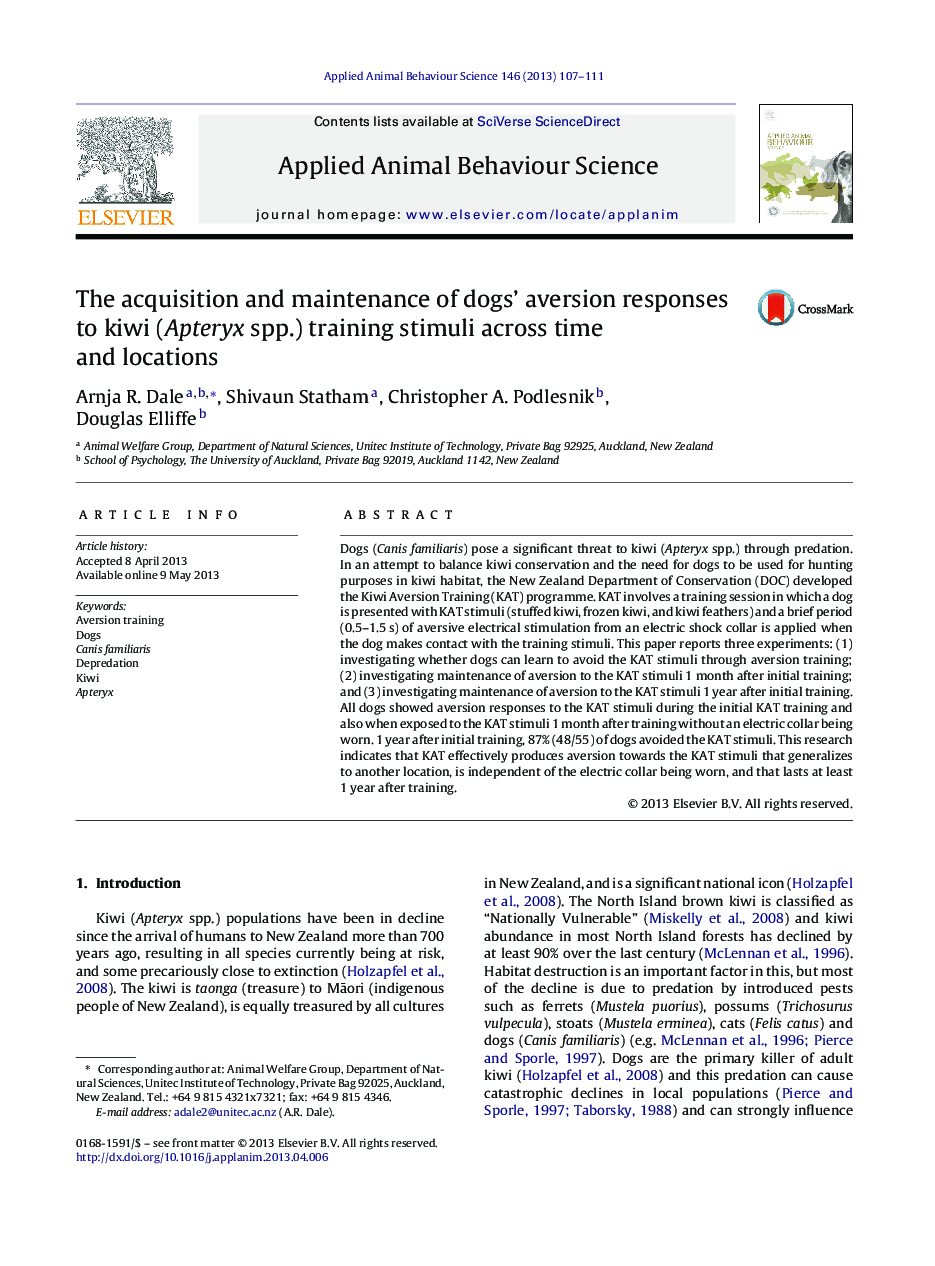| Article ID | Journal | Published Year | Pages | File Type |
|---|---|---|---|---|
| 4522830 | Applied Animal Behaviour Science | 2013 | 5 Pages |
Dogs (Canis familiaris) pose a significant threat to kiwi (Apteryx spp.) through predation. In an attempt to balance kiwi conservation and the need for dogs to be used for hunting purposes in kiwi habitat, the New Zealand Department of Conservation (DOC) developed the Kiwi Aversion Training (KAT) programme. KAT involves a training session in which a dog is presented with KAT stimuli (stuffed kiwi, frozen kiwi, and kiwi feathers) and a brief period (0.5–1.5 s) of aversive electrical stimulation from an electric shock collar is applied when the dog makes contact with the training stimuli. This paper reports three experiments: (1) investigating whether dogs can learn to avoid the KAT stimuli through aversion training; (2) investigating maintenance of aversion to the KAT stimuli 1 month after initial training; and (3) investigating maintenance of aversion to the KAT stimuli 1 year after initial training. All dogs showed aversion responses to the KAT stimuli during the initial KAT training and also when exposed to the KAT stimuli 1 month after training without an electric collar being worn. 1 year after initial training, 87% (48/55) of dogs avoided the KAT stimuli. This research indicates that KAT effectively produces aversion towards the KAT stimuli that generalizes to another location, is independent of the electric collar being worn, and that lasts at least 1 year after training.
